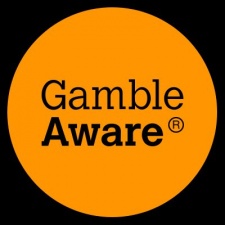UK charity GambleAware has released a damning new report into video game loot boxes.
The research – conducted by the Universities of Plymouth and Wolverhampton – says that there is robust evidence that this business model is "structurally and psychotically" the same as gambling. The report took self-reported data from 7,771 people who buy loot boxes and discovered that five per cent of the population makes up half of the revenue generated by loot boxes in a given year; in 2020, this was £700 million ($967.7 million).
Furthermore, the research says that a third of gamers fall into the category of "problem gambler."
"Our work has established that engagement with loot boxes is associated with problem gambling behaviours, with players encouraged to purchase through psychological techniques such as ‘fear of missing out’," said Dr James Close, senior research fellow at the University of Plymouth.
"We have also demonstrated that at-risk individuals, such as problem gamblers, gamers, and young people, make disproportionate contributions to loot box revenues.
“We have made a number of policy suggestions to better manage these risks to vulnerable people, although broader consumer protections may also be required.”
GambleAware CEO Zoe Osmond added: "This research is part of GambleAware’s continued commitment to protect children, adolescents and young people from gambling harms. The research has revealed that a high number of children who play video games also purchase loot boxes and we are increasingly concerned that gambling is now part of everyday life for children and young people.
“GambleAware funded this research to highlight concerns around loot boxes and problem gambling, ahead of the upcoming Gambling Act Review. It is now for politicians to review this research, as well as the evidence of other organisations, and decide what legislative and regulatory changes are needed to address these concerns.”
GambleAware has called for a number of measures to protect the public from gambling behaviour. These include clear definitions of loot boxes, enforceable age ratings and game labelling, disclosure of odds of receiving items, spending limits – and prices to be shown in real currency – as well as new regulations or tweaks to existing gambling laws.
Reacting to the story, UK video games trade body UKIE said: "The UK games industry has already taken action in regards to concerns around loot boxes," a UKIE spokesperson said. "Probability disclosures has already been introduced to the major game platforms; a new paid random item descriptor was added to the PEGI age rating system in 2020 to inform players of their presence; settings and tools on all major game devices -- and in a number of leading games -- already allow players to manage, limit or turn off spend.
"You can find out about all these measures, and more about responsible play, at www.askaboutgames.com. We will also continue to work constructively to support our players in partnership with Government and other organisations."
In September of last year, the UK government called for evidence in a new investigation into the impact of loot boxes. This followed a Department of Digital, Culture, Media and Sport inquiry that looked into the topic back in 2019, while the country's second chamber – the House of Lords – has said the business model should be regulated in the same way that gambling is.

















